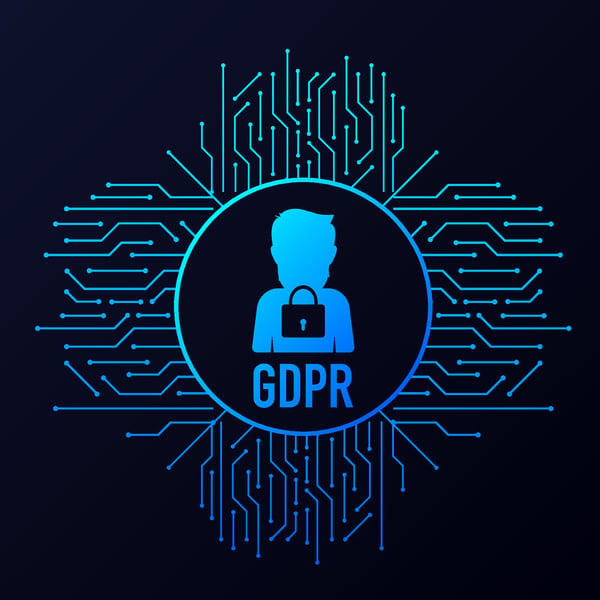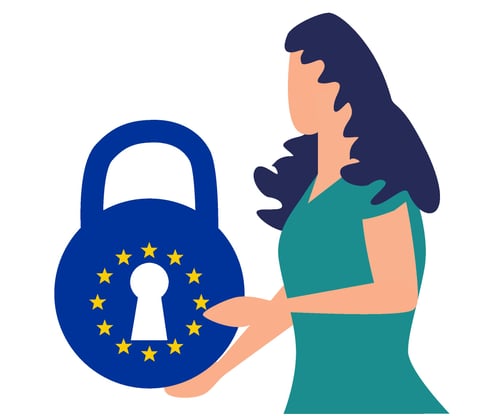3 Threats to Compliance and How to Ensure Data Protection for GDPR
 By
Ayfie
·
3 minute read
By
Ayfie
·
3 minute read
When you need to ensure data protection for GDPR in accordance with the current GDPR regulations, there are many available tools that have become crucial. How to manage GDPR for data protection depends somewhat on the case at hand, yet there are some overall best practices for all data protection when it comes to GDPR compliance. Whether you need to secure sensitive and personal data for GDPR compliance for a data subject access request, a data breach notification, or a data leakage, technology tools are a must to be able to comply and potentially avoid significant monetary and reputational losses, and save resources.

There are many cases in which you would need to deal with GDPR compliance. In this article we look at the top 3 threats for compliance and what you can do to ensure data protection for your business.
1. Data Subject Access RequestA data subject access request, also known as a DSAR, is caused by a person requesting insights into all the data someone has of them. The reaction time to provide the answer to the data subject access request is one month, which may sound like plenty of time, but not when you are unprepared, lack a good workflow to handle a DSAR, or get many of these requests. Typically, a DSAR is requested by a client or former employee and can cause a painful dive into large volumes of particularly sensitive information.
The sensitive information may be scattered across different repositories, some you might not have access to. In such cases, it will be necessary to contact colleagues to perform searches on each native application, which again multiplies the time and resources needed ensure compliance for GDPR data protection. Some data might even be in a format that is difficult to search, such as PDFs, CAD drawings and image formats. Therefore, there is a risk that you will forget important information that needs to be included for the DSAR.
2. Data Breach, risk analysis & compliance auditsCompliance audits are a comprehensive review of your organization's adherence to regulatory guidelines like GDPR. Compliance is impacted by local regulations, company policies, industry standards, many components that need to be considered.
It is central to perform a risk analysis, to estimate the risk associated with each of your data repository. However, you cannot perform a risk analysis if you don’t know precisely which data you hold within each of your data silo.
In case of a data breach, you need to react especially quickly. In fact, you have a 72-hour deadline to do so. Compliance audits, however, are done preemptively, so that you are prepared and have proper contingency plans.
3. Data leakageMaybe your data compliance is at the stage where you perfectly mapped which sensitive data goes where and all employees followed the GDPR awareness sessions. It all feels under control. But what do you do when company or customer sensitive information is at stake of being or is directly leaked?
Data leaks happen more often than we think. Regular monitoring the health of your data pipeline system and planning corrective actions is vital to manage data leakages.
Data protection is ever changing
The sensitive information involved in these different cases varies: If you’re a public institution or a private company, you might store different information, like health data. Furthermore, the data will vary depending on whether you collect financial information or not.
A very important point is that the existing regulations can evolve: one can never exclude the change to new rules that can change the scope of what one is looking for in a report.
Despite the many different possible scenarios for GDPR, data protection can always start with a generic framework using a tool to create reports and dashboards, that is adapted to match the needs and expectations of a customer.

Ensure data protection for GDPR
For all data protection for GDPR, a good process is key to safeguard sensitive and personal data. With reasonable preparation, contingency plans, relevant technologies and a good workflow, the task can become much easier and cut back processes that would go on for days, weeks or months, into a matter of minutes. The right technology for an easier GDPR compliance workflow, can even save your company millions in significant fines.
To help you learn more about compliance and data protection for GDPR, we have launched the Ayfie Supervisor Webinar series. In these episodes, we go through different challenges related to compliance, and how to build efficient workflows for each case.
The episodes are free and available on demand, as long as you sign up.
